
Stage Management - BA (Hons)
Currently viewing course to start in 2025/26 Entry.
Prepare yourself for a successful career in Stage Management by studying at Royal Birmingham Conservatoire. Our BA (Hons) Stage Management degree provides in-depth, practical training; we aim to produce confident graduates who are ready for a successful career in the industry as soon as they leave us. You'll gain authentic industry experience while developing the vital skills needed in each role of a stage management team.
- Level Undergraduate
- Study mode Full Time
- Award BA (Hons)
- Start date September 2025
- Fees View course fees
- Subject
- Location City Centre
This course is:
Open to International Students
Overview
So we produce over 21 productions in an academic year, and 14 of those are main scale shows that are open to the public. Being able to work in theatres around Birmingham is incredible. I've worked in the Old Rep Theatre, the Crescent Theatre, there's two theatres within there, and I've also worked at the Patrick Studio at the Hippodrome. So on Heanage Street, we have a building, we call it 3B, in there we have a wardrobe department, a workshop, we build sets and we have a props department as well as our own classroom there. It's a fantastic facility that we have. Just being able to experience different spaces, getting to know the space around Birmingham is such an incredible opportunity to have, and I've loved it.
With how the course is set up on the productions, we get to work with people, students from each year. It's really fun because with such a small group, you really get close really quickly and you're not always working with the same people and so you're moving around. You don't need to have any previous experience. You learn a lot by doing, and this course offers a lot of that doing.
Benefit of being out in theatre is great for us as we get to put into practice the skills that we've learnt from lectures in to real life scenarios and situations. We get to meet proper industry professionals in all sorts of venues and we also get to practice touring. We get to go to different venues, meet different people and build up contacts for portfolios. It's one of the best bits about being on this course, I'd say. This season I'm on set allocation, so I'm working very close with the design department at 3B. We're basically dealing with all set pieces and all the scenic art for the four shows, mainly painting, being in close contact with the directors, and then when the carpenters come in doing all the big builds or the set builds, painting it all, and then over the coming weeks, taking it into theatre, laying it down, setting it up, rigging it and directing it.
So first year we tend to be operating sound or lighting and helping with any kind of costume changes or set changes that need to happen on the stage. And then second year we go into kind of creating those sets, costumes, props and helping set up all the sound and lighting aspects for the designers so they don't have to do it all. And then in third year we're kind of running the whole show.
It's very helpful being in an actual theatre because when you go into the outside world, you're not just thrown randomly into a theatre in a space you've never been before. We link into everything you get to work on everything in the course. I've had four weeks of rehearsals over in Bournville and then obviously we come in to theatre, but then we go to do props stuff as well. So it's not all just being stuck in a classroom, it's very practical.
Prepare yourself for a successful career in Stage Management by studying at Royal Birmingham Conservatoire.
Our BA (Hons) Stage Management degree provides in-depth, practical training; we aim to produce confident graduates who are ready for a successful career in the industry as soon as they leave us. You’ll gain authentic industry experience while developing the vital skills needed in each role of a stage management team.
What's covered in this course?
Our three-year course provides you with a thorough understanding of all aspects of stage management. You’ll also develop an understanding of the core skills in technical theatre and the design elements, widening your knowledge and ability to work in the fast-paced, demanding environment of stage management and further afield.
During your degree you’ll explore all areas of theatrical performance production. Concentrating on the technical and logistical aspects, your studies will investigate lighting and sound, wardrobe, set design, props sourcing, maintenance, and the management and organisation of touring theatre. You’ll also widen your skills base, developing an awareness of the administration and funding of events and small theatre companies as well as the context of theatre today.
At Birmingham Conservatoire we have a vibrant, energetic and stimulating environment. You’ll be taught by our team of highly skilled and experienced staff, who also continue to work with industry.
Learn through practical experience
You’ll be expected to engage in a variety of professionally focused roles which will challenge you to grow as a creative practitioner. Taking on the essential duties of Assistant Stage Manager (ASM) in your first year of study, Deputy Stage Manager (DSM) in the second year, and Stage Manager in the final year, you’ll learn through experience, framed by theoretical study. Through a series of practical and theoretical lectures, seminars and workshops you’ll discover the disciplines needed to confidently and successfully bring scripts from page to stage.

This is not your average University course. With many tutors dedicated to a small amount of students full-time, and with a completely hands on, practical approach, you are constantly learning in a realistic environment that prepares you for embarking on your career. During my time on the course, I undertook the roles of Assistant Stage Manager, Deputy Stage Manager, Creative and Technical Assistants, Stage Manager and Project Manager, all of which have provided me with the skills I need to complete these roles in the industry. The highlight of the course for me was undertaking the role of Project Manager for an immersive theatre jail experience titled ‘…Until Proven Guilty’ set in a disused prison.
Lucy Gosden
Why Choose Us?
- Top 5 in the UK for Drama and Dance (Guardian League Table 2025).
- Working on around 14 shows per year, you progress – as you would in industry – from Assistant to Deputy to full Stage Manager roles across your three years.
- Your final year includes a six to eight week placement, where you experience the rigours and responsibilities of a busy stage management job. Recent placements have included Royal Ballet & Opera, Birmingham Royal Ballet, The Old Vic & The Globe.
- Develop your ability to bring scripts from page to stage through intensive, challenging and exciting study. You’ll action the requests of the director, supporting the production department and working alongside the cast while facilitating the rehearsal room.
- 100% of students rated the teaching on this course as good or very good (NSS 2024).
Open Day
Join us on campus where you'll be able to explore our facilities and accommodation in person, and chat to staff and students from the Royal Birmingham Conservatoire.
Next Open Day: 12 June 2025
Entry Requirements
These entry requirements apply for entry in 2025/26.
All required qualifications/grades must have been achieved and evidenced at the earliest opportunity after accepting an offer to help confirm admission and allow for on-time enrolment. This can also include other requirements, like a fee status form and relevant documents. Applicants can track their application and outstanding information requests through their BCU mySRS account.
Essential requirements
- Standard offer: 96 UCAS Tariff points. Learn more about UCAS Tariff points.
- Accelerate offer: 80 UCAS Tariff points. Find out more about BCU Accelerate.
Applicants will also need to complete an interview for this course; see interview arrangements below.
If you have a qualification that is not listed, please contact us.
Fees & How to Apply
UK students
Annual and modular tuition fees shown are applicable to the first year of study. The University reserves the right to increase fees for subsequent years of study in line with increases in inflation (capped at 5%) or to reflect changes in Government funding policies or changes agreed by Parliament. View fees for continuing students.
Award: BA (Hons)
Starting: Sep 2025
- Mode
- Duration
- Fees
- Full Time
- 3 years
- £9,535 in 2025/26 ✱ Important note for this price
- Apply via UCAS
(↩Back to price) * The Government is proposing to increase the cap on full-time regulated tuition fees to £9,535 for 2025/26 and the University is planning on increasing fees to that maximum level once legislation is enacted. Part-time fees are charged pro-rata, where applicable.
International students
Annual and modular tuition fees shown are applicable to the first year of study. The University reserves the right to increase fees for subsequent years of study in line with increases in inflation (capped at 5%) or to reflect changes in Government funding policies or changes agreed by Parliament. View fees for continuing students.
Award: BA (Hons)
Starting: Sep 2025
- Mode
- Duration
- Fees
- Full Time
- 3 years
- £19,970 in 2025/26
- Apply via UCAS
Applications are still open for September 2025. Apply now
Guidance for UK students
UK students applying for most undergraduate degree courses in the UK will need to apply through UCAS.
The Universities and Colleges Admissions Service (UCAS) is a UK organisation responsible for managing applications to university and college.
Applying through UCAS
- Register with UCAS
- Login to UCAS and complete your details
- Select your course and write a personal statement
- Get a reference
- Pay your application fee and submit your application
Guidance for International students
There are three ways to apply:
1) Direct to the University
You will need to complete our International Application Form and Equal Opportunities Form, and submit them together with scan copies of your original academic transcripts and certificates.
2) Through a country representative
Our in-country representatives can help you make your application and apply for a visa. They can also offer advice on travel, living in the UK and studying abroad.
3) Through UCAS
If you are applying for an undergraduate degree or a Higher National Diploma (HND), you can apply through the UK’s Universities and Colleges Admissions Service (UCAS).
You can request a printed form from your school or nearest British Council office. You will be charged for applying through UCAS. Birmingham City University’s UCAS code is B25 BCITY.
Personal statement
UK / EU students are required to submit a personal statement as part of their application for this course.*
The personal statement gives you a crucial opportunity to say why you’re applying and why the institution should accept you.
Here are the key areas you’ll need to address:
- Course choice - Why does this course appeal? What areas are of particular interest?
- Career plans - If you have a specific career in mind, say how your chosen course will help you pursue this goal.
- Work experience - Mention any work that is relevant to your subject, highlighting the skills and experience gained.
- School or college experience - Highlight skills gained at school/college, eg summer schools or mentoring activities.
- Non-accredited skills or achievement - eg Duke of Edinburgh Award, Young Enterprise scheme.
You should also mention your future plans – if you’re planning to take a year out, don't forget to give your reasons. Talk about any subjects you’re studying that don’t have a formal assessment and any sponsorships or placements you’ve applied for. And don't be scared to add in details about your social, sports or leisure interests.
Worried about Personal Statements?
If you've got no idea where to start or just want to check you're on the right track, we’ve got expert advice and real examples from our students to help you nail your personal statement. You can even download our ultimate personal statement guide for free.
*Non-EU students are not required to submit a personal statement when applying for this course.
Course in Depth
Year one
In order to complete this course a student must successfully complete all the following CORE modules (totalling 120 credits):
The role of a Stage Manager requires an understanding of the multiple contexts within which contemporary theatre is created and the impact of past traditions on present practices. Students must be able to understand the cultural and historical framework of a script. Students need the opportunity to then put into practice the theories, skills and knowledge they gain in other modules on the course in a professional theatrical environment to gain a realistic sense of the pressures, deadlines, problem-solving, and on-going decision-making processes that public performance entails. Students will be encouraged to develop their creativity in relation to their stage management duties, working across 3 production seasons.
Students provide support for the two workshop seasons by taking on the role of DSM in rehearsals, demonstrating the roles specific tasks linked with this position. Also working as a team they ensure high production values across props, costume & scenic design. They exercise their creative skills to ensure period detail and accuracy in making and sourcing all that is required for the show from rehearsal period to final show. Supported by detailed prompt copies for both productions.
A strong Stage Manager needs to not only understand their own discipline but also have an understanding of the various technical elements which come together to create a piece of theatre or other performance event. This module provides students with a working knowledge of these technical areas in lighting, sound & video.
Stage Management requires an understanding of the various elements of props, costume and scenic design which come together to create a piece of theatre or other performance event, and the practical skills required to realise those design concepts.
Year two
In order to complete this course a student must successfully complete all the following CORE modules (totalling 120 credits):
This module along with the other Practical Stage Management modules in Years 1 & 3 provides the central practical focus within the course.
Students need the opportunity to put into practice the theories, skills and knowledge they gain in other modules on the course in a professional theatrical environment to gain a realistic sense of the pressures, deadlines, problem-solving, and on-going decision– making processes that public performance entails and how these relate to the role of a Deputy Stage Manager. In preparation for the 3rd year they will also then focus on those skills of a stage manager for an in house workshop season giving them the chance to practice these before working on public shows. Students will be encouraged to be an essential creative part of the production team, and not see their role as one of a service function.
Students have the opportunity to broaden their knowledge and understanding of producing a theatrical event and the considerations needed to take a piece of theatre on tour. Stage Managers need to understand many levels of working in an Arts Organisation, especially in smaller self-contained companies. This module prepares the students to deal with the development of budgets, the sourcing of funding and the marketing and selling of product.
Having gained in the first year of study a foundation knowledge and understanding of the various technical elements which come together to create a piece of theatre or other performance event, students need the opportunity to further deepen this knowledge and understanding through the more specialised creative development of either lighting or sound.
Students will need to gain a wider practical experience of the real-life context in which they can exercise the skills they are learning.
Having gained in the first year of study a foundation knowledge and understanding of the various prop, costume and scenic design elements which come together to create a piece of theatre or other performance event, students need the opportunity to further deepen this knowledge and understanding through the more specialised creative development of either props, costume of scenic design.
Students will need to gain a wider practical experience of the real-life context in which they can exercise the skills they are learning.
The module is an opportunity to learn and critically reflect on the skills of collaboration by enabling you to create an interdisciplinary project with students from complementary disciplines,or with academic staff.Collaboration is a vital employability skill within the Creative Industries and this module allows you to develop these skills, making use of University facilities and with the support of academic staff.
Year three
In order to complete this course a student must successfully complete all the following CORE modules (totalling 120 credits):
This module along with the other Practical Stage Management modules in Years 1 & 2 provides the central practical focus within the course.
Students need the opportunity to put into practice the theories, skills and knowledge they gain in other modules on the course in a professional environment to gain a realistic sense of the pressures, deadlines, problem-solving, and on-going decision–making processes that public performance entails, and how these relate to the role of a Stage Manager, Including a firm understanding of Health and Safety regulations and their practical application.
This module offers the student Stage Manager the opportunity to research and explore for themselves the work of a professional company or area of interest which may offer professional employment, and to relate their training to the professional world. Students need to develop the basic freelance personal management skills in order to operate as a professional Stage Manager. Students will have the opportunity to use their organisational and communication skills to network professionally.
Students need to recognise that professional development is a continuing process across a lifetime. Students need to understand the further opportunities offered to those with stage management and technical skills by the wider context of other related media. Students need to understand the opportunities which exist for further education and training beyond the BA (Hons) Stage Management.
This module allows students to use the skills they have developed on the course to be given full creative expression. Students will be able to autonomously develop their skills in technical and stage management, and test the limits of their own imaginative and professional capabilities. They will have the opportunity to use all their ensemble, problem- solving, negotiating and management skills in a collaborative, creative practical context.
Download course specification
Download nowCourse Structure
During your degree you’ll explore all areas of theatrical performance production.
First Year
Your first year of study will introduce you to the demanding and essential duties of an Assistant Stage Manager. You’ll investigate technical theatre skills, as well as prop, costume and scenic design.
There are three elements of study during your first year that are vital to the function of a stage management team. You’ll learn these through the Practical Stage Management, Technical Theatre Skills and Prop, Costume and Scenic Design modules.
Development of the skills taught through these modules will extend your ability to work and respond creatively within a team. Through contextual studies you’ll explore the history and context of theatre today. This will teach you to understand the world in which a play is set, and which it is based. You’ll learn how to critically evaluate your role as an Assistant Stage Manager learning how to carry out the prescribed tasks. You’ll work as an Assistant Stage Manager on the full scale shows, putting all of these skills into practice.
Your first year of study provides a foundation for practical work that will take place in your second and third years. Your study will be delivered through workshops, studio and rehearsal based spaces.
Second Year
During your second year of study you’ll build upon the knowledge and skill development throughout your first year. You’ll take on the role of Deputy Stage Manager, becoming an integral part of the rehearsal process and in theatre ‘calling the show’. You’ll develop your knowledge and skills in technical theatre and props, costume and scenic design. And you’ll be expected to learn key aspects of arts administration and health and safety that will be invaluable to your career.
During this year you’ll be able to delve into a more specific area of study, which is discussed within the Technical Theatre 2 and Props, Costume and Scenic Design modules. You’ll gain a wider practical experience of a real-life, professional context. You’ll do this through taking responsibility as part of a student team, running and maintaining the studio performance space in your Technical Theatre Skills Two module.
Your knowledge will evolve and deepen, becoming more specialised and paving the way for your final year and then on to a creative career.
Third Year
Your final year of study centres on practical application of the skills you’ll accumulate throughout the degree. You’ll explore the role of Stage Manager in the Practical Stage Management module during which you’ll stage manage one of the full scale shows in an external venue. You’ll also work alongside your peers to create and design an event to showcase the stage management skills you’ve learnt and present the event to an invited industry audience as well as the general public.
The final year will prepare you for your career. Through the Industry Research and Professional Studies modules you’ll critically reflect upon your own skills. We’ll prepare you to enter the workplace as dynamic and entrepreneurial professionals. These modules will enable you to generate project outlines and business plans for productions in a variety of venues and performance styles while preparing you for the world of work in this industry.
Your third year of study is designed to help you gain a realistic sense of the pressures, deadlines, problem-solving processes involved in public performance, teaching you how these issues relate to the role of a stage manager. In this role you also supervise your own team of a student Deputy Stage Manager and Assistant Stage Managers, under the guidance of staff.
Employability
Enhancing your employability
The BA (Hons) Stage Management course provides you with a clear understanding of the roles and responsibilities of a Stage Manager in a theatrical production. You’ll discover and understand the use and purpose of theatre lighting, sound and audio-visual technology. With an exploration of props, costume and scenic design, you’ll discover, in-depth, the demands of the field.
We’ll provide you with the ability and skills to take on the role of Assistant, Deputy and Stage Manager. Discussions of the work of professional organisations and interests will help prepare you to take on employment within industry.
You’ll develop an understanding of the use and purpose of all aspects of stage management skills, design and various technologies in the creation of production, including investigation of the health and safety requirements that govern a theatrical production. You’ll learn many transferable skills throughout your study.
The course will help you develop a critical awareness of the creative possibilities that theatre provides. You’ll be able to interpret, assess and quantify the requirements of a theatrical event. You’ll acquire the ability to respond to the demands of the industry, and you’ll be able to carry out the tasks and roles of Stage Management.
You’ll learn how to organise, promote and enhance your skills as a creative practitioner, and you’ll be able to work effectively as part of a team. You’ll learn how to manage personal workloads, and negotiate and pursue goals with others.
Placements
During your final year you’ll have the chance to undertake a placement within a professional context relating to stage management. You’ll take responsibility for finding and organising the role, with support from the staff.
We encourage you to engage with ideas and theories within a practical setting, developing your communication skills and working in an authentic environment. In the past, students have undertaken placements at industry-leading organisations such as the Royal Shakespeare Company and the Royal Opera House and Birmingham Repertory Theatre.
Trips and visits
Throughout the duration of the three-year course we encourage you to visit as many productions as you can. This will allow you to develop an authentic understanding of the theatrical and event world.
There are select opportunities throughout the course to gain industry experience. In the past, as part of the Stage Management Skills module, we’ve taken students to the Royal Shakespeare Company’s archive to observe and understand prompt copies. We aim to widen your knowledge of the industry through the encouragement of practical engagement. We also have backstage tours of the Royal Opera House and where possible observe professional technical rehearsals.
In your final year of study you’ll be offered the chance to undertake a placement, which you’ll organise individually, allowing you to take on a role that is specific to your interests.
Facilities & Staff
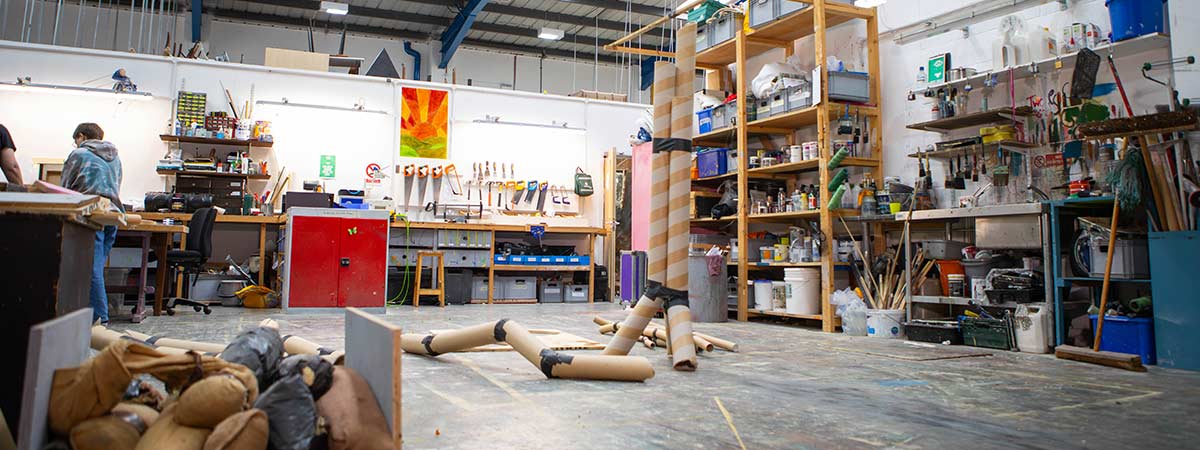
Location
Stage Management is based at Unit 3B Heneage Street, which includes a classroom, , props/furniture/costume stores, fitting room and a spacious workshop to prepare for productions. Students will also get to work alongside Acting students at various locations including Ruskin Hall, RBC Digbeth and other city centre locations.
We use professional external venues for most public performances, including the Crescent Theatre, the Patrick Centre at Birmingham Hippodrome, The Old Rep and Blue Orange Theatre (all subject to availability), with Stage Management students getting to apply their skills and knowledge into real-life theatre environments.
Performances
Acting Students regularly perform at professional theatres across the West Midlands, including The Birmingham Central Library Theatre; Crescent Theatre; Hippodrome Studio (Patrick Centre); The Old Rep Theatre and The Drum, with Stage Management students getting to apply their skills and knowledge into real-life theatre environments.
Stage Management facilities
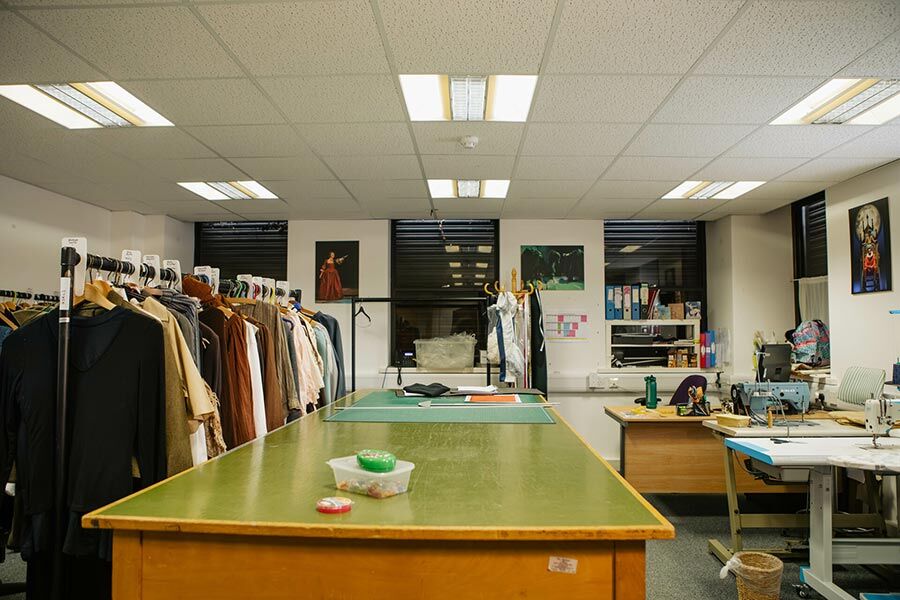
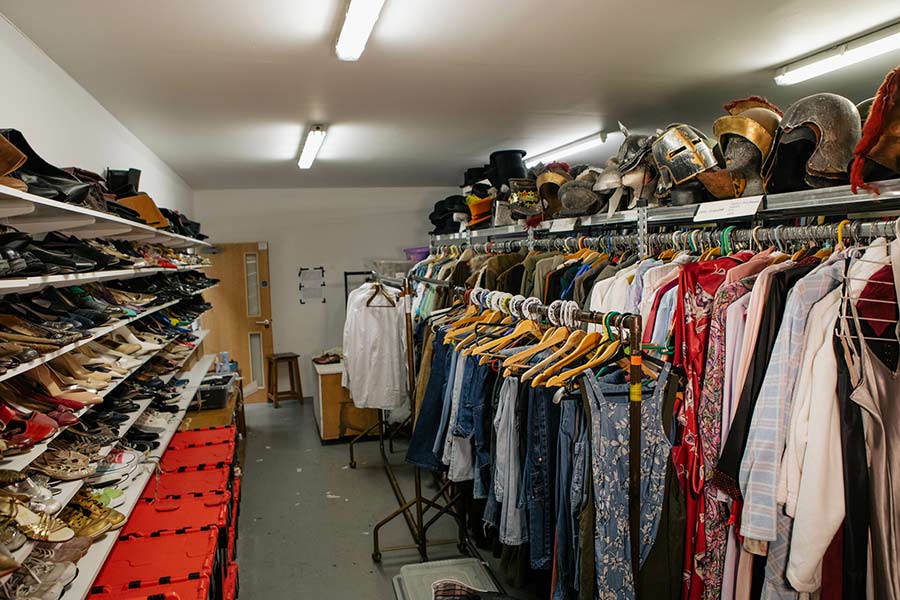

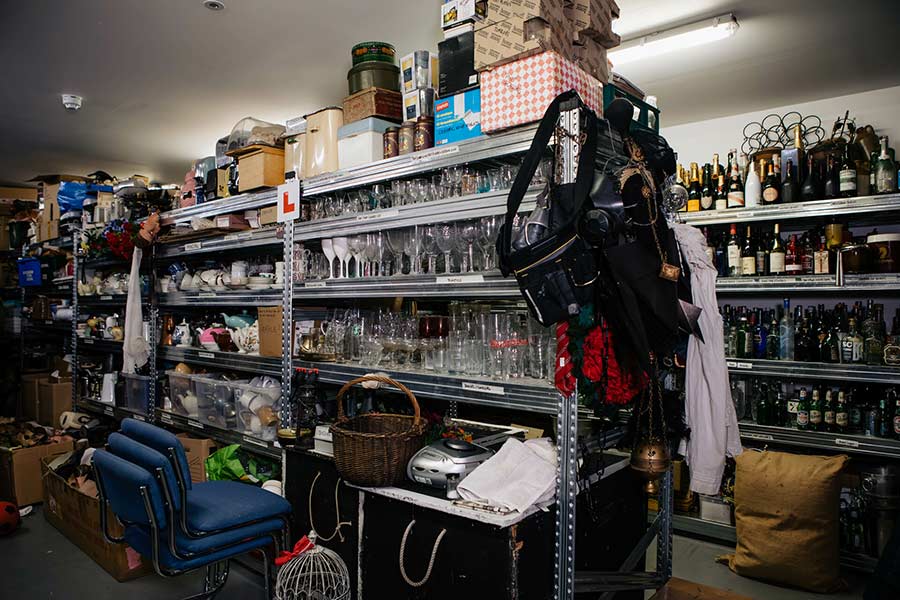
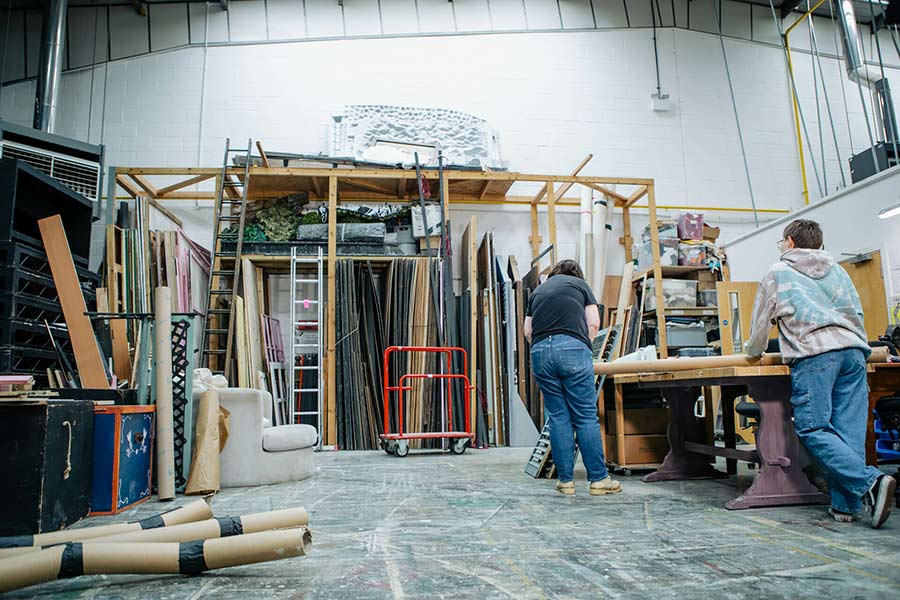
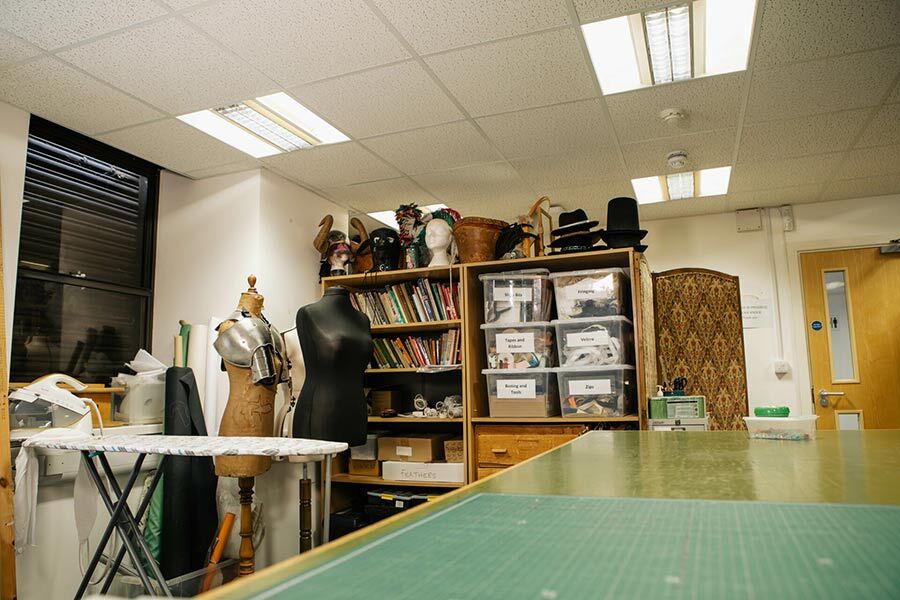
Our staff
Jacqui Findlay
Programme Director for Stage Management - BA (Hons) and Production Manager
Jacqui Findlay is Programme Director for Stage Management - BA (Hons) and Production Manager. During her freelance professional career Jacqui worked on a diverse range of projects from Shakespeare to contemporary dance via opera and panto. Many of these projects toured both nationally and internationally. Just before joining BSA Jacqui was...
More about JacquiLouise Turner
Stage Management Tutor
Louise is a Staff Stage Manager for Acting. She has been working at BCU for over ten years whilst also gaining industry experience whenever possible. She is a personal tutor on the BA Stage Management course and supervises stage management students across all years whilst working on productions throughout the rehearsal and production process in...
More about LouiseHelen Maynard
Lecturer
Helen has been working in the stage management industry for 13 years and is one of two Staff Stage Managers within Royal Birmingham Conservatoire. Helen is part of the professional production team that provides production support to almost all courses within RBC. Helen is also a Stage Management supervisor, demonstrator and personal tutor on the BA...
More about Helen
